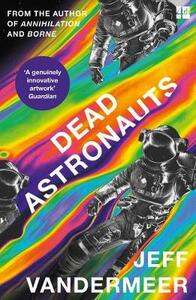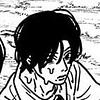You need to sign in or sign up before continuing.
Take a photo of a barcode or cover
challenging
dark
reflective
slow-paced
Annihilation was abstract , but this barely has any structure at all. There are no relatable characters and certainly no character development. Nothing happens; time doesn't move forward and there is no plot. The deliberately confusing prose is infuriating, and every mini mystery that is somewhat solved by the end is only done so in a vague way, so you're never sure what happened. And we never really get the full backstory, which is disappointing because all of the creative ideas would have benefitted from some fascinating origin stories.
Sometimes reading VanderMeer's works reminds me of how I feel when I read in a foreign language: I can kinda follow the main thought, but I know I'm not fully understanding. That's not a complaint. I liked this reading experience, even if I'm not 100% sure what I just read.
challenging
dark
mysterious
sad
tense
medium-paced
Plot or Character Driven:
Character
Strong character development:
Yes
Loveable characters:
Complicated
Diverse cast of characters:
Yes
Flaws of characters a main focus:
Yes
challenging
dark
mysterious
slow-paced
Plot or Character Driven:
Character
Strong character development:
Complicated
Loveable characters:
Complicated
Diverse cast of characters:
Yes
Flaws of characters a main focus:
Yes
adventurous
challenging
dark
emotional
mysterious
reflective
tense
medium-paced
Plot or Character Driven:
A mix
Strong character development:
Yes
Loveable characters:
Yes
Diverse cast of characters:
Yes
Flaws of characters a main focus:
Yes
challenging
dark
mysterious
reflective
medium-paced
reflective
medium-paced
Plot or Character Driven:
N/A
Strong character development:
N/A
Loveable characters:
Yes
Diverse cast of characters:
N/A
Flaws of characters a main focus:
No
honestly i didnt understand like most of the book but i think this is like one of my favorites. tje prose is like absolutely gorgeous i loved to read it out loud. it is so creative using the book as its own medium doing things that could not work in any other form its just rlly good.
“Do you feel the salamanders falling?”
I’ve enjoyed all the Jeff VanderMeer books, but “Dead Astronauts” blows them all away. Poetic, lyrical, lush, cryptic, strange, hopeful, despairing, critical, alliterative verse-prose, heart-breaking, passionate, horrifying: this book has all of this and more.
VanderMeer takes a more powerful than ever environmental stance in “Dead Astronauts,” showing the active decay of the earth through the eyes of a quantum blue fox. At times the various narrators speak directly to the reader (or an in-universe reader at least) and wonder whether we can even understand what they’re trying to tell us. To warn us about. What will happen if a Company takes experiments too far, and it isn’t known until it’s too late? The blue fox might have an answer.
This is not a book one can simply dip in and out of. It captures you, urges you to keep reading, to keep listening. VanderMeer’s writing is unlike anything in science fiction right now, and that’s a wonderful thing. With each book his writing twists and develops into something new, and it wouldn’t surprise me if a future VanderMeer novel is written entirely in verse. I cannot sing the praises of this book high enough. I would wrap it in my heart if I could (and if that imagery is too weird for you, you probably won’t enjoy this book).
You do not have to have read “Borne” to understand or appreciate “Dead Astronauts” but it does make the story more fascinating as pieces of the mystery of “Borne” are unraveled. Not all of them, but enough hints are given to provide a firmer grasp of the world of the Company and the City.
“Nothing thrives without being broken.”
I’ve enjoyed all the Jeff VanderMeer books, but “Dead Astronauts” blows them all away. Poetic, lyrical, lush, cryptic, strange, hopeful, despairing, critical, alliterative verse-prose, heart-breaking, passionate, horrifying: this book has all of this and more.
VanderMeer takes a more powerful than ever environmental stance in “Dead Astronauts,” showing the active decay of the earth through the eyes of a quantum blue fox. At times the various narrators speak directly to the reader (or an in-universe reader at least) and wonder whether we can even understand what they’re trying to tell us. To warn us about. What will happen if a Company takes experiments too far, and it isn’t known until it’s too late? The blue fox might have an answer.
This is not a book one can simply dip in and out of. It captures you, urges you to keep reading, to keep listening. VanderMeer’s writing is unlike anything in science fiction right now, and that’s a wonderful thing. With each book his writing twists and develops into something new, and it wouldn’t surprise me if a future VanderMeer novel is written entirely in verse. I cannot sing the praises of this book high enough. I would wrap it in my heart if I could (and if that imagery is too weird for you, you probably won’t enjoy this book).
You do not have to have read “Borne” to understand or appreciate “Dead Astronauts” but it does make the story more fascinating as pieces of the mystery of “Borne” are unraveled. Not all of them, but enough hints are given to provide a firmer grasp of the world of the Company and the City.
“Nothing thrives without being broken.”






